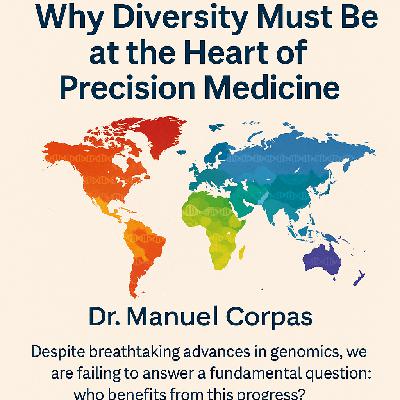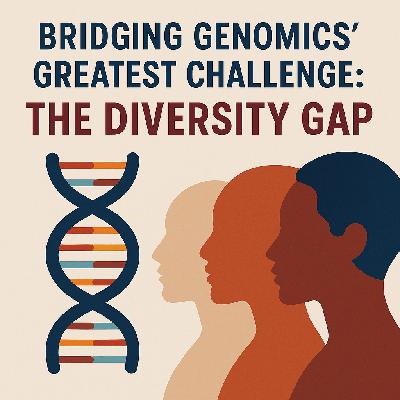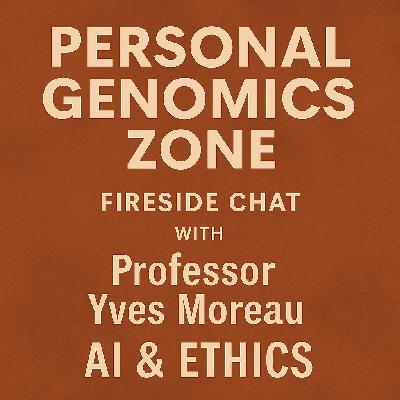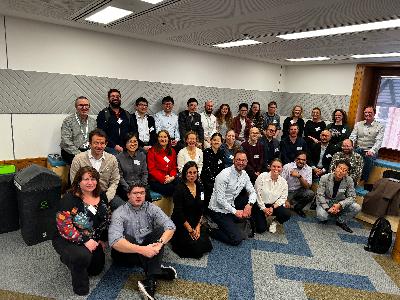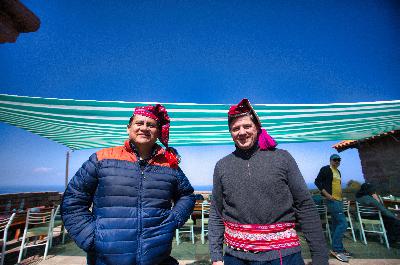Understanding the Genomic Legacy of the Inca Empire and the Peruvian Genome Project
Description
This presentation was delivered in Spanish by Dr. Manuel Corpas at the Latin American Genetics Symposium 2024 in Medellín, Colombia, where he explores the genetic legacy of the Inca Empire and how the Peruvian Genome Project is reshaping our understanding of indigenous populations. A rehearsal of this presentation has been recorded and uploaded to YouTube and can watch it below. Here you can learn about the importance of representing underrepresented communities in global genomic research, the ethical challenges of working with indigenous data, and the impact these findings have on personalised medicine.
<figure class="wp-block-embed is-type-video is-provider-youtube wp-block-embed-youtube wp-embed-aspect-16-9 wp-has-aspect-ratio">
In this talk (in Spanish), Dr. Manuel Corpas discusses the genetic legacy of the Inca Empire and the significance of the Peruvian Genome Project in advancing genomic research on indigenous populations. Presented at the Latin American Genetics Symposium 2024 in Medellín, Colombia. #Genomics #IncaLegacy #PeruvianGenomeProject #LatinAmericanGenetics #PersonalisedMedicine #IndigenousResearch</figcaption></figure>
<figure class="wp-block-audio"></figure>
Introduction: In the realm of genomic research, one of the most underrepresented groups in global reference data sets are the indigenous populations of the Americas. This includes the descendants of the Inca Empire, whose rich heritage and genetic adaptations have much to teach us about human resilience and diversity. My ongoing research, along with the Peruvian Genome Project, focuses on addressing this gap, ensuring that these populations are not left behind in the era of genomic medicine.
Respecting Indigenous Cultures and Traditions: Working with indigenous genomic data is a privilege that comes with great responsibility. The cultural and historical significance of these populations demands sensitivity and respect. Our efforts aim to honor their legacy while ensuring that the dignity of their descendants is preserved. This is not just a scientific endeavor, but a cultural one that requires recognizing the humanity behind the data.
Challenging Genetic Colonialism: A critical issue in genomic research is the risk of “genetic colonialism,” where the benefits of research are disproportionately reaped by those outside the studied communities. I unequivocally condemn this practice. Our work is guided by ethical standards that ensure the autonomy and rights of indigenous populations are respected. We are committed to equitable sharing of research benefits, ensuring that the communities involved directly benefit from the insights gained.
Building Trust Between Science and Indigenous Populations: Historically, there has been a profound distrust between indigenous populations and the scientific community. This stems from centuries of exploitation and a lack of representation. Through transparency, collaboration, and dialogue, we aim to build bridges of trust. The goal is to foster a relationship where science becomes a tool for empowerment rather than exploitation.
Why Indigenous Genomic Data Matters: The genomic diversity of Latin American populations, particularly indigenous groups, is vital for developing accurate and applicable reference panels. Current global datasets are heavily skewed towards individuals of Anglo-Saxon descent, leaving a significant gap when it comes to populations like the descendants of the Inca. This lack of diversity has serious consequences—it compromises the ability to deliver precise diagnostics, treatments, and risk assessments for individuals from underrepresented groups.
The Peruvian Genome Project: The Peruvian Genome Project stands at the forefront of addressing these disparities. This scientific initiative seeks to sequence and analyze the genomes of Peru’s diverse populations, including those in remote regions such as the Amazon and the Andes. By focusing on these indigenous communities, the project aims to uncover unique genetic variants that offer insights into how these populations have adapted to extreme environments. This is more than a quest for knowledge; it is an opportunity to improve health outcomes for individuals whose genetic data is often overlooked.
The Genetic Legacy of the Inca Empire: The Inca civilization is one of the most iconic in world history, and its genetic legacy continues to shape the modern population of Peru. Evidence suggests that around 23,000 years ago, the ancestors of Native Americans diverged from East Asians, undergoing a long period of isolation before arriving in the Americas. This isolation likely contributed to unique genetic adaptations, particularly in response to environmental challenges such as high altitude and infectious diseases.
Clinical Implications: One of the most important findings from the Peruvian Genome Project relates to genetic predispositions in immunity. Indigenous Peruvian populations show over-representation of immune response genes, which could explain their susceptibility or resistance to certain diseases. This knowledge has the potential to transform how we approach public health in indigenous communities, particularly in the context of infectious diseases like tuberculosis or influenza.
Conclusion: The Peruvian Genome Project and similar initiatives represent a turning point in genomic research. By focusing on underrepresented populations like the descendants of the Inca Empire, we not only enrich our understanding of human diversity but also pave the way for more inclusive and equitable healthcare solutions. Indigenous populations are not just subjects of study—they are key contributors to the future of genomic science.





